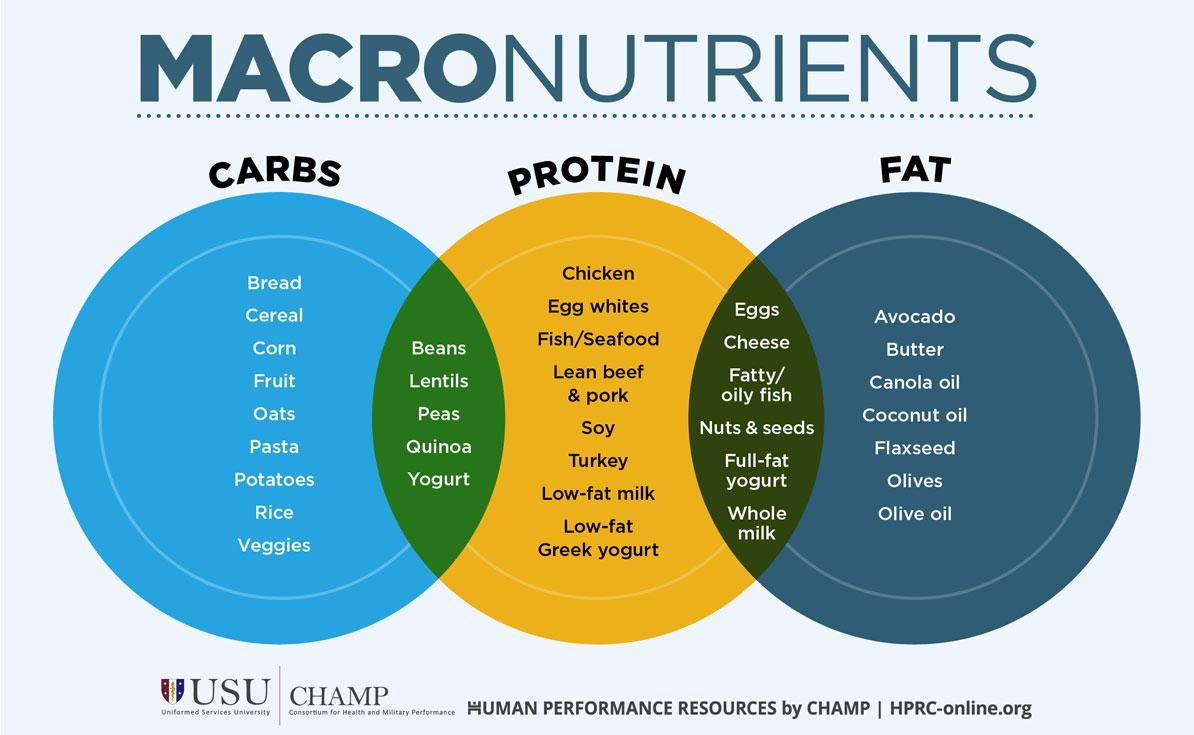In today’s fast-paced world, where convenience often trumps quality, maintaining a balanced diet has never been more crucial. As awareness about the importance of nutrition continues to rise, we find ourselves bombarded with conflicting information, trendy diets, and fads that promise quick fixes but often leave us more confused than empowered. This is where mastering nutrition becomes not just beneficial, but essential for our overall well-being.
In this comprehensive guide, we will explore the foundational principles of a balanced diet, dissect the macronutrients and micronutrients that fuel our bodies, and offer practical tips to help you make informed food choices. Whether you are aiming for weight management, improved energy levels, or simply a healthier lifestyle, understanding the science behind nutrition is the first step towards achieving your goals. Join us as we delve into the art of mastering nutrition, empowering you to cultivate a diet that nourishes both body and mind—because true health starts with what we choose to put on our plates.
Table of Contents
- Understanding Macronutrients for Optimal Health
- The Role of Micronutrients in Immune Function and Energy Levels
- Practical Meal Planning Strategies for a Balanced Diet
- Common Dietary Pitfalls and How to Avoid Them
- Wrapping Up
Understanding Macronutrients for Optimal Health

Macronutrients are the building blocks of our diet, providing the energy and nutrients essential for our bodily functions. They are classified into three primary categories: carbohydrates, proteins, and fats. Each macronutrient plays a unique role in maintaining health and wellness. Understanding their functions is vital for designing a balanced eating plan that supports your individual health goals. For instance, carbohydrates are the body’s preferred source of energy, fueling everything from daily activities to intense workouts. Meanwhile, proteins are crucial for muscle repair and growth, while healthy fats support hormone production and nutrient absorption.
To make informed dietary choices, it’s important to recognize the recommended distribution of these macronutrients in our daily intake. The general guideline suggests the following percentages of total daily calories:
- Carbohydrates: 45-65%
- Proteins: 10-35%
- Fats: 20-35%
To put this into perspective, here’s a simple table illustrating the macronutrient content of common foods:
| Food Item | Carbohydrates (g) | Proteins (g) | Fats (g) |
|---|---|---|---|
| Quinoa (1 cup cooked) | 39 | 8 | 4 |
| Chicken breast (100g) | 0 | 31 | 3.6 |
| Avocado (1 medium) | 12 | 3 | 21 |
By incorporating a variety of nutrient-dense foods from each macronutrient group, you can achieve a more balanced diet tailored to your lifestyle and health needs. Monitoring your intake and understanding how these macronutrients interact can pave the way for long-term health improvements and vitality.
The Role of Micronutrients in Immune Function and Energy Levels

Micronutrients, though required in smaller amounts compared to macronutrients, play a pivotal role in bolstering immune function and maintaining energy levels. Essential vitamins and minerals such as vitamin C, vitamin D, zinc, and iron are vital constituents of a well-functioning immune system. They help in the production of antibodies, promote the activity of immune cells, and facilitate the healing process in our bodies. A deficiency in any of these micronutrients can lead to compromised immunity and increased susceptibility to infections. To ensure adequate intake, consider incorporating foods such as:
- Fruits: Citrus fruits, berries, and kiwi for vitamin C
- Dairy Products: Fortified milk and yogurt for vitamin D
- Seeds and Nuts: Pumpkin seeds and cashews for zinc
- Legumes and Red Meat: Lentils and beef for iron
Furthermore, the correlation between micronutrients and energy levels cannot be understated. A well-balanced intake of essential vitamins and minerals ensures that our metabolic pathways function efficiently, translating the food we consume into the energy we need for daily activities. B vitamins, particularly B6, B12, and folate, are crucial for energy metabolism and red blood cell production. Consequently, a lack of these nutrients can lead to fatigue and overall decreased physical performance. A thoughtfully curated diet rich in the following elements can help enhance your energy levels:
| Micronutrient | Food Sources | Role in Energy Production |
|---|---|---|
| Vitamin B6 | Poultry, fish, potatoes | Conversion of food into energy |
| Vitamin B12 | Meat, eggs, dairy | Red blood cell production |
| Folate | Leafy greens, beans, citrus | Cell division and energy metabolism |
Practical Meal Planning Strategies for a Balanced Diet
When it comes to maintaining a balanced diet, practical meal planning can be a game changer. Start by setting a weekly menu that incorporates a wide variety of foods, including fruits, vegetables, whole grains, and lean proteins. Consider adopting a few strategies to streamline your planning process:
- Batch Cooking: Prepare larger portions of meals that can be stored and consumed throughout the week, helping you save time and reduce waste.
- Theme Nights: Designate certain nights for specific types of cuisine—like Meatless Monday or Taco Tuesday—to simplify decision-making.
- Flexible Recipes: Choose versatile recipes that allow for substitutions and variations based on seasonal produce or pantry staples.
Another effective approach is to create a shopping list that aligns with your meal plan. This helps to minimize impulse buys and ensures that you have the necessary ingredients on hand. Use the table below to visualize a simple weekly grocery list that can assist in planning meals for a balanced diet:
| Food Group | Examples |
|---|---|
| Fruits | Apples, Bananas, Berries |
| Vegetables | Spinach, Carrots, Bell Peppers |
| Proteins | Chicken, Lentils, Eggs |
| Grains | Quinoa, Brown Rice, Whole Wheat Bread |
| Dairy | Greek Yogurt, Milk, Cheese |
Common Dietary Pitfalls and How to Avoid Them
Despite best intentions, many individuals inadvertently fall into common dietary traps that hinder their pursuit of a balanced diet. Lack of planning is one of the most significant pitfalls; without a clear roadmap, it’s easy to resort to quick, unhealthy options. To counter this, create a weekly meal plan that incorporates a variety of food groups and prioritize whole foods like fruits, vegetables, lean proteins, and whole grains. Additionally, mindless eating—often triggered by distractions like television or smartphones—can lead to overconsumption. To avoid this, practice mindful eating by dedicating time to meals without external distractions, allowing for better awareness of portion sizes and hunger cues.
Another prevalent issue is the misconception about healthy foods. Many people assume that foods labeled as “fat-free” or “sugar-free” are inherently healthy, but these products can still contain high levels of preservatives and additives. Reading nutrition labels is essential to discern the true healthiness of a product. Furthermore, skipping meals, particularly breakfast, can lead to excessive hunger later in the day, making it more likely to indulge in unhealthy choices. Instead, aim to maintain a steady intake of nutrients throughout the day by incorporating small, balanced meals or snacks, ensuring sustained energy levels and reducing the temptation to overeat.
Wrapping Up
mastering nutrition is not a destination but a continuous journey that requires education, mindfulness, and adaptability. A balanced diet is essential for not only maintaining physical health but also fostering mental well-being and enhancing overall quality of life. As you navigate your path toward improved nutrition, remember that every small change counts. Whether it’s incorporating more whole foods, understanding portion sizes, or being mindful of your nutrient intake, each step taken will bring you closer to your goals.
We hope this comprehensive guide has empowered you with the knowledge and tools necessary to make informed dietary choices. The principles of nutrition aren’t rigid rules but rather flexible guidelines to help you cultivate a relationship with food that nourishes your body and supports your lifestyle. Stay curious, seek balance, and embrace the process of finding what works best for you.
Thank you for joining us on this journey toward mastering nutrition. Here’s to your health and the joy of discovering a more vibrant, balanced life!



